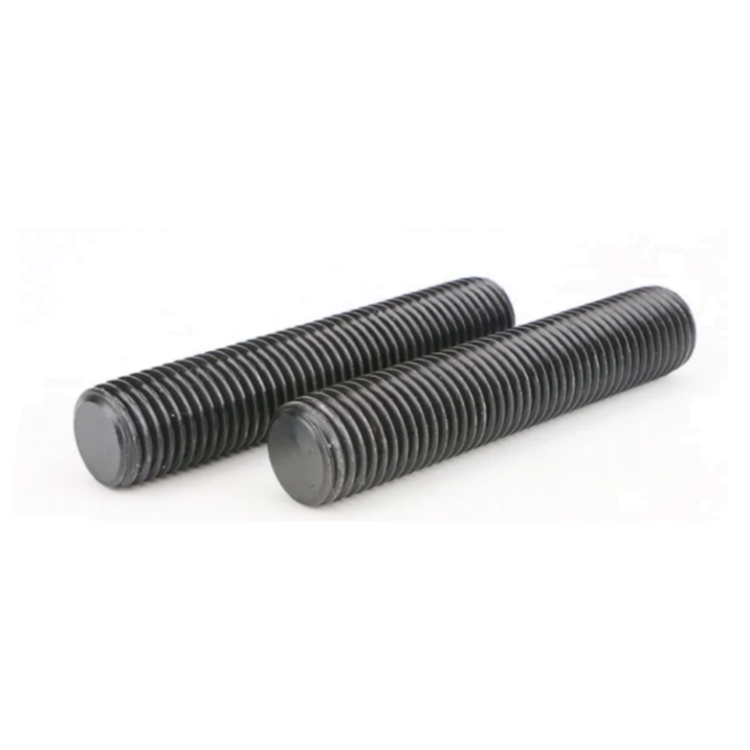Exploring Bolts in the Automotive Industry for Enhanced Performance and Safety
ធ្នូ . 06, 2024 15:38 Back to list
Exploring Bolts in the Automotive Industry for Enhanced Performance and Safety
Understanding Bolts in the Automotive Industry
In the automotive industry, bolts are not just simple fasteners; they are a critical component that ensures the structural integrity and safety of vehicles. From holding the engine components together to securing the chassis, bolts play a significant role in the overall performance and reliability of automobiles. Understanding the types of bolts used, their specifications, and their applications is essential for both manufacturers and consumers alike.
Types of Bolts
There are numerous types of bolts used in automotive applications, each designed to meet specific requirements and load conditions. Some common types include
1. Hex Bolts With a hexagonal head, these bolts are among the most common types found in automotive settings. They can be used in a variety of applications, making them versatile components for manufacturers.
2. Carriage Bolts Typically used in wood-to-metal applications, carriage bolts have a rounded head and are designed to be inserted into a pre-drilled hole. They are often found in bracketry where smooth surfaces are needed.
3. Lag Bolts These heavy-duty bolts are used primarily for fastening wood to wood or wood to metal. They have a thick body and a coarse thread for increased holding power.
4. Shoulder Bolts Featuring a non-threaded shoulder that acts as a spacer or pivot, these bolts are commonly used in applications requiring rotational movement, such as in linkage systems.
5. Flange Bolts Equipped with a built-in washer, flange bolts distribute the load over a larger area, making them ideal for securing metal parts together without the need for a separate washer.
Materials and Specifications
The materials used for bolts in the automotive industry are crucial in determining their strength, weight, and corrosion resistance
. Common materials include- Steel Most automotive bolts are made from high-strength steel alloys, providing excellent tensile strength and durability.
bolts automotive

- Stainless Steel Used in applications where corrosion resistance is paramount, stainless steel bolts are typically utilized in exterior components or undercarriage parts exposed to moisture and salt.
- Aluminum Lightweight and resistant to corrosion, aluminum bolts are often used in performance applications where weight savings are critical.
When selecting bolts for automotive applications, several specifications are considered, such as diameter, thread pitch, length, and grade. The grade of a bolt indicates its tensile strength; for instance, a Grade 5 bolt has a yield strength of approximately 120,000 psi, while a Grade 8 bolt can handle up to 150,000 psi.
Importance of Proper Installation
Proper installation and maintenance of bolts are vital for vehicle safety and performance. Over-tightening can lead to bolt failure, stripping threads, or damaging components, while under-tightening can result in loose connections and potential mechanical failure. Utilizing torque specifications provided by manufacturers is essential to ensure the longevity and reliability of the bolted joints.
Regular inspections of bolted connections can help identify any signs of wear, corrosion, or loosening. In high-stress environments, such as racing or off-roading, it is even more critical to monitor the condition of bolts and replace them as needed to prevent catastrophic failures.
Innovation and Future Trends
As the automotive industry evolves towards electric vehicles (EVs) and increasingly sophisticated technology, the role of bolts continues to adapt. Advanced materials such as carbon fiber or composite materials may replace traditional metals, leading to new fastening technologies.
Additionally, the integration of automation in manufacturing and assembly processes is revolutionizing how bolts are applied in vehicle production. Robotic systems can provide precise torque application, further enhancing the reliability of bolted connections.
Moreover, as sustainability becomes a focal point in automotive design, the development of recyclable or biodegradable fastening solutions is on the rise. These innovations aim to minimize the environmental impact of vehicle production and enhance the recyclability of materials at the end of a vehicle’s life cycle.
Conclusion
Bolts may seem like small components in the grand scheme of automotive engineering, but their significance cannot be overstated. Understanding the diverse types, materials, and proper applications of bolts is vital for anyone involved in vehicle design, manufacturing, or maintenance. As the automotive industry continues to innovate and evolve, so too will the technologies surrounding bolts, ensuring that they remain an integral part of automotive safety and performance for years to come.
Latest news
-
Top Wire Bolts Suppliers - Quality & Durable Fasteners
NewsAug.15,2025
-
Trusted Wire Bolts Company | Quality Fasteners Supplier
NewsAug.14,2025
-
Reliable Wire Bolts Suppliers & Manufacturers for Global Needs
NewsAug.13,2025
-
High-Quality Bolts for Lawn Mower Handle Supplier
NewsAug.12,2025
-
Leading Phosphated Drywall Screws Supplier | Bulk & Custom Orders
NewsAug.11,2025
-
Top Wire Bolts Company: Manufacturers, Exporters & Suppliers
NewsAug.10,2025
